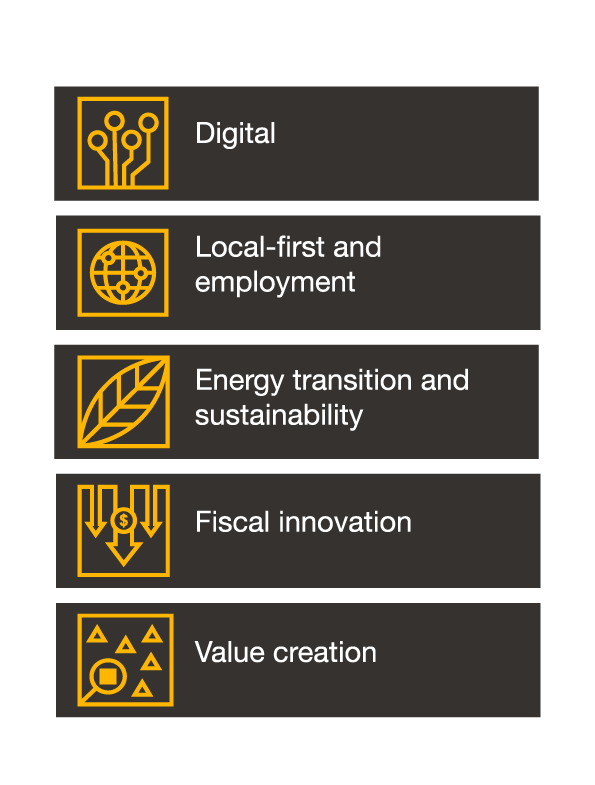Five key transformation themes in the GCC
Globally, governments and societies will re-evaluate what success looks like in the future. In the past, putting GDP growth and shareholder value above all other measures resulted in unprecedented globalisation and wealth creation, and lifted many people out of poverty. But over time, this model has produced extreme disparities, put jobs at risk in many countries, weakened communities and social cohesion and damaged the environment. Going forward, we need to define a local-first and more interdependent and inclusive definition of success.
To achieve the new definition of success in the GCC region, many interdependent factors must be considered. However in five key areas, an accelerated cycle of repair, rethink and reconfigure will be vital to achieving massive and fast transformation.















